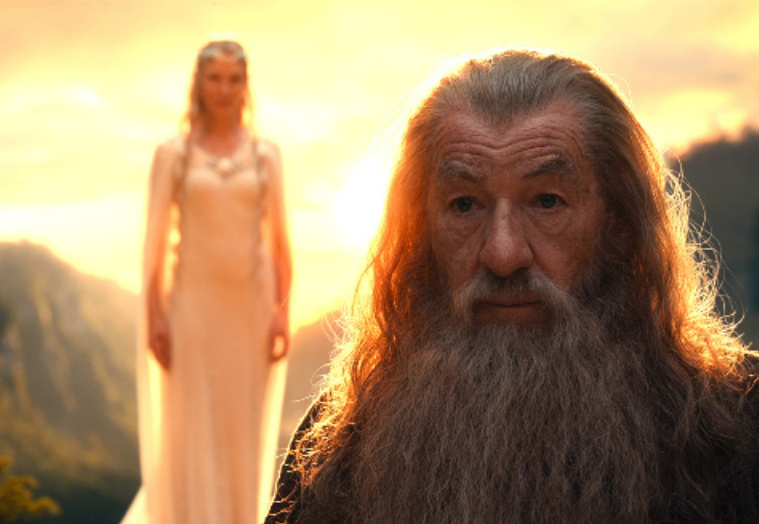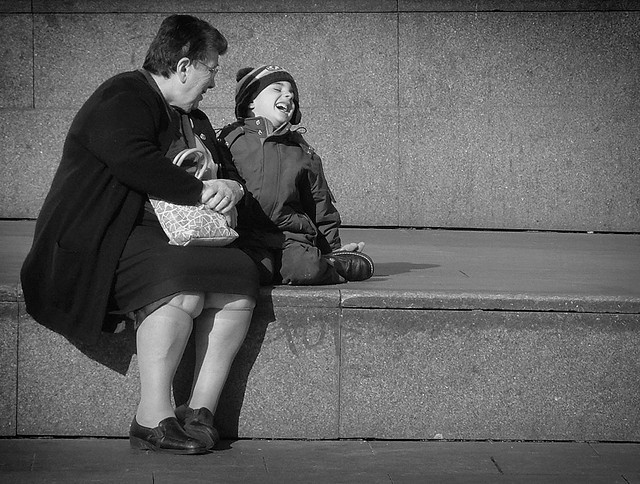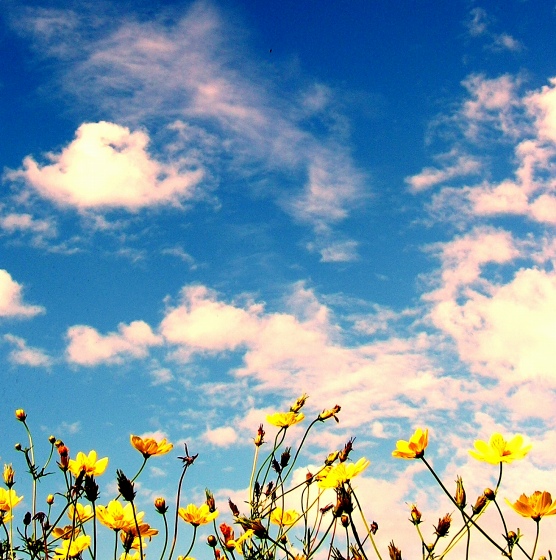Ordinary Hero - Have You Ever Wondered What the Meaning of Your Life is?
Rapha and I went to the park for a picnic in a summer afternoon in Rotterdam. We had always wanted go for a picnic like how couples did in movies, which were often filmed in US or Europe, where, unlike Brazil and Vietnam, lying under the sun in summer don’t feel like roasting yourselves. We were excited like two little kids. We made careful observation of the surrounding, and chose a spot close to the lake, next to a big old tree, where just a few couples had settled.
I pulled out the yellow blanket, flattened it on the ground, folded our light jackets into two pillows. We lied down on the cushion of the green grass, under the azure sky. Soft rays of sunlight gave warmth to our body, comforting the chill that the jolly breeze sometimes brought to us, flipping the pages of our open books, after making the lake dance.
Rapha rested his head on my tummy. And I gently stroke his soft, dark hair. I gazed at the sky – the mass of infinity towering above us, not so far away, but so far away. I studied the shape of the leaves sparkling like emerald in the sun on a small branch of the old tree. I heard birds chirping in the distance. There, I felt a sense of blissful emptiness. I was nothing and everything at that moment.
I whispered, to Rapha, perhaps also to myself “Have you ever wondered what the meaning of your life is?”
We all want to live a life with meaning, don’t we?
But what is a life with meaning?
What does meaning mean?
Of all the celebrity award-receiving speeches, the most memorable one for me is of Angelina Jolie, when she was honored with the Jean Hersholt Humanitarian Award. She stood behind the podium, hold the trophy in her hands, stunning in a black dress; her voice did not conceal her emotion:
“My mother loved art, she loved film, she supported everything I did but whenever it had meaning, she made a point of telling me: “That’s what film is for!” She wasn’t really the best critic since she never had anything unkind to say but she did give me love and confidence and above all she was very clear that nothing would mean anything if I didn’t live a life of use to others.
I didn’t know what that meant for a long time. I came into this business, young and worried about my own experiences, my own pain. And it was only when I began to travel and look and live beyond my home did I understand my responsibility to others.
When I met survivors of war and famine and rape, I learnt what life is like for most people in this world, and how fortunate I was to have food to eat, roof off my head, a safe place to live and the joy of having my family safe and healthy. And I realized how sheltered I have been, and I determined never to be that way again.”
Angelina Jolie is among who we call heroes, many of those never receive or care about an award. They seemed like solders in the great battles, touching, saving the lives of millions.
They sometimes made me felt ashamed of my ordinary life. What have I done to this world? I was agitated that if I didn’t do anything, my life would dissolve like headache tablet in a glass of water. Only until I was moved deeply by a scene in The Lord of The Ring, did I understand that those fear and shame were wrong. On that scene, Gandalf - being asked by Lady Galadriel: “Mithrandir, why the Halfling?” - whispered:
Only until I was moved deeply by a scene in The Lord of The Ring, did I understand that those fear and shame were wrong. On that scene, Gandalf - being asked by Lady Galadriel: “Mithrandir, why the Halfling?” - whispered:
“I do not know. Saruman believes that it is only great power that can hold evil in check. But that it is not what I’ve found. I’ve found it is the small things, every act of normal folk that keeps the darkness at bay — simple acts of kindness and love. Why Bilbo Baggins? Perhaps it is because I am afraid, and he gives me courage.”
There it is - the simple act of kindness and love.
The problem with “the great hero” scenario is that it seems out of reach by ordinary folks like you and I. We marvel at people who go to Africa to feed the poor, or head to North Pole to save polar bears, or strike pirate fights with shark-fin ships. We admire the battle they fight; only that, it seems to happen at the mountain meadow in the other side of the cliff, like in an Old West movie.
We wished to jump to that side too! We believe it is the right thing to do. Though, it is no joke to leap across the cliff. And we look down at our old horses and our bad knees. Maybe we can just stay here, you know, we cheer for them a little while, and go home mind our own things. Or maybe we will take the leap until we have money to buy better horses. Oh, and also medicine to tend our knees.
“The simple act of kindness and love” sounds so simple, perhaps like an easy excuse not to go to the great battles. But I found it is not, it is extremely easy to slip away from our fingers, which are most of the time busy typing on keyboards.
What was the last time you show a simple act of kindness and love? Genuine kindness and love, with no expectation of receiving anything, absolutely anything, even love, in return?

Ralph Waldo Emerson defined success so beautifully that it rang true to my heart first time I read it, and has been my anchor whenever I crave validation, recognition and fame:
To laugh often and much; To win the respect of intelligent people and the affection of children; To earn the appreciation of honest critics and endure the betrayal of false friends; To appreciate beauty, to find the best in others; To leave the world a bit better, whether by a healthy child, a garden patch or a redeemed social condition; To know even one life has breathed easier because you have lived. This is to have succeeded.
Emerson built in those words a different version of success and a vision of an ordinary hero. Someone who fights, not because the battle is big and glorious according to the media, not because the bounty that comes with its victory, but because their conviction deemed it worth fighting for. Ordinary hero “fights the right fight”, as borrowed from the words of Paulo Coelho.
Brene Brown added more light to my search for the meaning of meaning. She explained in her book “The Gift of Imperfection” that we create a sense of meaning in our lives by “sharing our gifts with the world”. When we don’t, “we feel disconnected and weighed down by feelings of emptiness, frustration, resentment, shame, disappointment, fear, and even grief”. It’s important to remind ourselves that “no one can define what’s meaningful for us. Like our gifts and talents, meaning is unique to each one of us.”
Brown ended the section “Cultivating Meaningful Work” in her book with a quote from Howard Thurman.
"Don’t ask what the world needs. Ask what makes you come alive, and go do it. Because what the world needs is people who have come alive."
Those words untangled me and had given me the strength to write. Because writing brought me from believing in a life with meaning experiencing a meaningful path, from idolizing the great soldiers, to being an ordinary hero.
I realized that what I needed wasn’t to leap through that cliff. I can keep the darkness at bay right here with simple act of kindness and love, and by sharing my gifts with the world. My old horse and bad knees are enough for me to start dancing now. Alive more than ever.
Have you found what makes you alive?
What are your gifts?
And are you sharing them with the world?
- - -
Featured Photo Credit: Len Matthews
